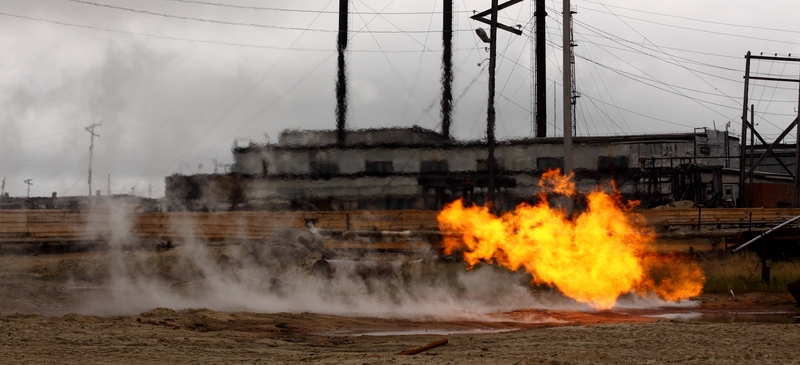
Just another gas crisis?
by Katinka Barysch
Russia has cut off the gas flowing to and through Ukraine – again. Like in January 2006, Moscow and Kyiv are blaming each other, while a convoluted mix of political intrigues, shady middlemen and broken contracts makes it almost impossible for outsiders to ascertain which side is at fault. But the current interruption in gas supplies to Europe is different in many ways from that three years ago.
First, the interruption is more severe but some EU countries appear to be better prepared. In January 2006, when Gazprom first turned off the tap over a pricing dispute with Kyiv, the volumes affected were much smaller. On January 7th 2009, Russian gas supplies through Ukraine (which account for over 80 per cent of all Russian gas sales to Europe) stopped altogether. The bigger EU countries, such as Germany, Italy and France, have plenty of gas in storage and they can use more Norwegian or Algerian or domestic gas instead. However, some of the newer member-states are not so lucky. Bulgaria, Slovakia, Hungary and Poland, with little storage or access to alternative suppliers will have to ration gas. A spike in energy prices is the last thing Europe’s struggling industries need at the moment. Calls for European ‘energy solidarity’ will suddenly acquire a new meaning.
Second, the political dynamics are very different. In 2006, when memories of the orange revolution were still rather fresh, many Europeans were quick to blame Russia for using energy to punish pro-western Ukraine. Now Ukraine’s squabbling, self-serving leaders attract little sympathy. The fact that Ukraine does not have a functioning government mattered less as long as its economy was doing well. But now it has become one of the main obstacles to resolving the crisis.
Russia has considerably beefed up its PR efforts, having warned of potential supply cuts weeks ago (and blaming the Ukrainians in advance). But the fact that some smart people speculate whether Russia has deliberately caused the gas crisis to destabilise Ukrainian politics or to push up global energy prices shows just how little credibility the country has, especially after the Georgia war. Both Moscow and Kyiv had reassured the Europeans numerous times that gas transit to the EU would not be affected. Now half of Europe is living of its own gas storage or switching to fuel oil. Gazprom’s mantra that it, really is, a reliable supplier sounds hollow. But so does Ukraine’s claim to be the innocent victim of neo-imperialist policies.
Third, the stakes for both Ukraine and Russia are a lot higher. In 2006, Ukraine’s economy grew by more than 7 per cent despite higher gas prices, as exports of steel and chemicals boomed. At the end of 2008, Ukraine’s economy was in meltdown, with industrial production down 30 per cent year on year in November. The Ukrainian currency has plummeted 40 per cent against the dollar since September. So paying for imports – including energy – would be a lot harder even if gas prices stayed the same. The IMF, which has pledged $16 billion to shore up the Ukrainian economy, will demand that the government phase out energy subsidies to keep the budget deficit under control. That means that more of any gas price increase will have to be passed on to households. With inflation already running at 20 per cent and presidential elections coming up next year, Ukraine simply cannot afford a rise to $450 per 1,000 cubic metres, as requested by Gazprom after the negotiations broke down.
Russia is also in a very different position. Its external surplus and reserves are dwindling. Gazprom, like most Russian companies, is seriously short of cash. Ukraine buys more than 40 billion cubic metres of gas from Russia a year, which makes it one of Gazprom’s bigger customers. So the price of these sales does matter for Russia. However, the costs of a sustained interruption of gas flows would be immeasurably higher. Not only because Gazprom could face an avalanche of law suits from European companies if supply contracts were breached, but also because Gazprom could lose its standing in its biggest and most lucrative market. That is already happening.
The final, and perhaps most important, difference between the 2006 and today is that Europe is more likely to draw the right conclusions. After the 2006 cut-off, the Europeans panicked – and then the EU proceeded to lecture Russia on how to run its energy sector and export business while individual EU countries rushed to sign long-term bilateral agreements with Gazprom to secure their own supplies. This did not work. Today, the Europeans will (hopefully) focus on what they can do together to increase their energy security: build a functioning internal gas market, invest more in gas storage and focus on alternative sources of gas, for example from the Caspian via Nabucco and in the form of LNG from Northern Africa and the Middle East. They also need to reinforce their efforts to achieve their 20 per cent energy savings target and explore alternative sources of power, namely renewables and nuclear. If the gas standoff reminds the Europeans of the importance of such measures, Russia and Ukraine will have done the EU a favour.
Download the CER’s book ‘Pipelines, politics and power: The future of EU-Russia energy relations’ for free http://www.cer.org.uk/pdf/rp_851.pdf
Katinka Barysch is deputy director of the Centre for European Reform.
